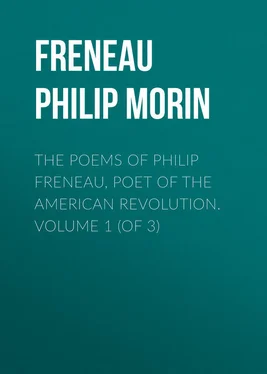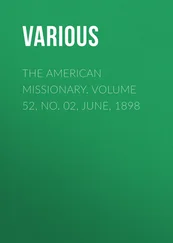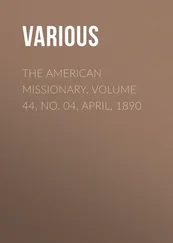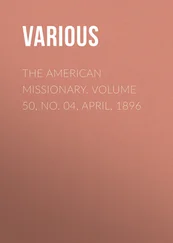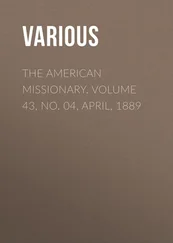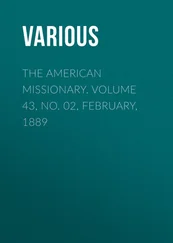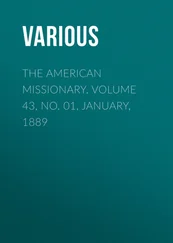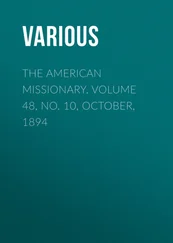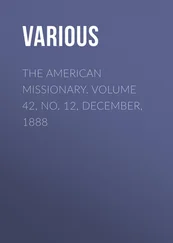Philip Freneau - The Poems of Philip Freneau, Poet of the American Revolution. Volume 1 (of 3)
Здесь есть возможность читать онлайн «Philip Freneau - The Poems of Philip Freneau, Poet of the American Revolution. Volume 1 (of 3)» — ознакомительный отрывок электронной книги совершенно бесплатно, а после прочтения отрывка купить полную версию. В некоторых случаях можно слушать аудио, скачать через торрент в формате fb2 и присутствует краткое содержание. Жанр: Поэзия, foreign_antique, foreign_prose, foreign_poetry, на английском языке. Описание произведения, (предисловие) а так же отзывы посетителей доступны на портале библиотеки ЛибКат.
- Название:The Poems of Philip Freneau, Poet of the American Revolution. Volume 1 (of 3)
- Автор:
- Жанр:
- Год:неизвестен
- ISBN:нет данных
- Рейтинг книги:4 / 5. Голосов: 1
-
Избранное:Добавить в избранное
- Отзывы:
-
Ваша оценка:
- 80
- 1
- 2
- 3
- 4
- 5
The Poems of Philip Freneau, Poet of the American Revolution. Volume 1 (of 3): краткое содержание, описание и аннотация
Предлагаем к чтению аннотацию, описание, краткое содержание или предисловие (зависит от того, что написал сам автор книги «The Poems of Philip Freneau, Poet of the American Revolution. Volume 1 (of 3)»). Если вы не нашли необходимую информацию о книге — напишите в комментариях, мы постараемся отыскать её.
The Poems of Philip Freneau, Poet of the American Revolution. Volume 1 (of 3) — читать онлайн ознакомительный отрывок
Ниже представлен текст книги, разбитый по страницам. Система сохранения места последней прочитанной страницы, позволяет с удобством читать онлайн бесплатно книгу «The Poems of Philip Freneau, Poet of the American Revolution. Volume 1 (of 3)», без необходимости каждый раз заново искать на чём Вы остановились. Поставьте закладку, и сможете в любой момент перейти на страницу, на которой закончили чтение.
Интервал:
Закладка:
"The next morning the weather had cleared away and the wind came round to the N. E. which during the gale had been E. N. E. – the land was then in sight, about 5 miles distant, latitude at noon 36-17, I then rigged out a broken boom, and set the fore top-sail, the only sail remaining, and steered for cape Henry; making however but very little way, the vessel being very much on one side and ready to sink with her heavy cargo of iron, besides other weighty articles. We were towed in next day, Friday, by the friendly assistance of capt. Archibald Bell, of the ship Betsey, from London – I have since arrived at this port by the assistance of a Potowmac pilot. – Nothing could exceed our distress – no fire, no candle, our beds soaked with sea water, the cabbin torn to pieces, a vast quantity of corn damaged and poisoning us to death, &c. &c. &c. As we entered this port, on the 29th of July, the very dogs looked at us with an eye of commiseration – the negros pitied us, and almost every one shewed a disposition to relieve us. In the midst of all this vexation the crew endeavoured to keep up their spirits with a little grog, while I have recourse to my old expedient of philosophy and reflection. I have unloaded my cargo, partly damaged, partly otherwise – This day I also begin to refit my vessel, and mean to proceed back to New-York as soon as refitted, which cannot be sooner than the 25th, perhaps the 30th of this month. It is possible, however, that I may be ordered to sell the vessel here; if so, I shall take a passage to Baltimore, and go to New-York by the way of Philadelphia, to look out for another more fortunate barque than that which I now command.
I cannot forbear quoting another letter 9written nearly a year later, since it gives us a charming glimpse of the Freneau of this period:
"Yamacraw, Savanna, March 14th, 1789."Sir: Amongst a number of my good natured acquaintance, who have lately sympathized with me, on account of what they term my misfortunes, during great part of last year, I know of no one more entitled to my acknowledgments, on the occasion, than yourself. When an old woman talks of witches, ghosts, or blue devils, we naturally make an allowance for bad education, or the imbicility of intellect, occasioned by age. When one man seriously supposes another unfortunate, for the sake of two or three successive disasters, which no prudence or foresight could have avoided, the same allowance ought to be made, provided the same excuses could be assigned.
"Can you be serious, then in advising me to quit all future intercourse with an element, that has for some years, with all its dangers and losses, afforded to your humble servant attractions, far more powerful than those of Apollo! Formerly, when I wrote poetry, most of those that attended to it, would not allow my verses to be good. I gave credit to what I deemed the popular opinion, and made a safe retreat in due time, to the solitary wastes of Neptune. I am not, however, inclined to believe people so readily now, when they alledge my vessel is not sound, and when several gentlemen, for reasons best known to themselves, and perhaps not over willing to risque the uncertainties of the world to come, effect to doubt of her ability to waft their carcases in safety.
But my ambition is greatly concerned in this matter: a schooner is confided to my care, humble, indeed, when compared to those lofty piles which I have seen you so much admire, but which is, nevertheless, really capable of an European, nay of an India voyage. Read all history, ransack libraries, call tradition to your aid, search all records, examine a million of manuscripts on vellum, on parchment, on paper, on marble, on what you please, and I defy you to find the most distant hint of any poet , in any age or country, from Hesiod down to Peter Pindar, having been trusted with the controul or possession of anything fit to be mentioned or compared with the same barque, which you say, I have the misfortune to command.
"To be serious: misfortune ought to be only the topic of such men as do not think or reason with propriety, upon the nature of things. Some writer says, it is but another name for carelessness or inattention: Though that may not at all times be the case, it is in the power of every man to place himself beyond the supposed baneful influence of this inexorable deity, by assuming a dignity of mind, (if it be not the gift of nature) that will, in the end, get the better of the untoward events, that may frequently cross our best purposes. Indeed, the sea is the best school for philosophy (I mean of the moral kind); in thirteen or fourteen years' acquaintance with this element, I am convinced a man ought to imbibe more of your right genuine stoical stuff, than could be gained in half a century on shore. – I must add that, be our occupations what they may, or our fortunes what they will, there is a certain delectable, inexpressible satisfaction in now and then encountering the rubs and disasters of life, and I am entirely of the opinion which (says Dr. Langhorne)
"Weakness wrote in Petrarch's gentle strain,
When once he own'd at love's unfavouring shrine
A thousand pleasures art not worth one pain !"
"I must now conclude this scrawl, with telling you, that I am receiving on board my vessel a small cargo of lumber, at a place called Yamacraw, a little above Savanna. The weather is extremely warm, I am tired of my letter, and must, of course, conclude. I do not know whether you ever mean to make a voyage to sea – if you should, thrice welcome shall you be to such accommodations as my little embarkation affords. Poets and philosophers, shall ever travel with me at a cheap rate indeed! Not only because they are not generally men of this world, but because, even supposing the barque that bears them, should make an external exit to the bottom of the ocean, the busy world, as things go, will regret the loss of most of them very little, perhaps not at all.
On the 24th of April, 1789, when Washington arrived in New York to enter upon the duties of the presidency, in the fleet that accompanied him from Elizabethtown Point was the schooner Columbia , Capt. Freneau, eight days from Charleston. In June the Columbia again entered New York Harbor, and on December 28th she was at Sunbury, Georgia. On February 12th, 1790, Freneau arrived in New York, passenger from Middletown Point in the brig Betsy , Capt. Motley, to become editor of Child and Swaine's New York Daily Advertiser . For several months negotiations had been pending. Every appearance of the poet in New York for a year past had been marked by a small budget of poems in the Advertiser from the pen of "Capt. Freneau," but it was not until February, 1790, that he was induced to leave his beloved Columbia and settle down to a life upon shore. The poem "Neversink," written some months later, is his valedictory to the ocean.
"Proud heights: with pain so often seen
(With joy beheld once more)
On your firm base I take my stand,
Tenacious of the shore:
Let those who pant for wealth or fame
Pursue the watery road; —
Soft sleep and ease, blest days and nights,
And health, attend these favoring heights,
Retirement's blest abode."
The poem "Constantia" may record the poet's reasons for leaving the ocean, for on the 19th of May, 1790, there appeared in Peter Freneau's Charleston paper, the City Gazette , or the Daily Advertiser , the following:
" Married , on the fifteenth of April, at Middletown Point, East New Jersey, Capt. Philip Freneau to Miss Eleanor Forman, daughter of Mr. Samuel Forman, of that place."
Читать дальшеИнтервал:
Закладка:
Похожие книги на «The Poems of Philip Freneau, Poet of the American Revolution. Volume 1 (of 3)»
Представляем Вашему вниманию похожие книги на «The Poems of Philip Freneau, Poet of the American Revolution. Volume 1 (of 3)» списком для выбора. Мы отобрали схожую по названию и смыслу литературу в надежде предоставить читателям больше вариантов отыскать новые, интересные, ещё непрочитанные произведения.
Обсуждение, отзывы о книге «The Poems of Philip Freneau, Poet of the American Revolution. Volume 1 (of 3)» и просто собственные мнения читателей. Оставьте ваши комментарии, напишите, что Вы думаете о произведении, его смысле или главных героях. Укажите что конкретно понравилось, а что нет, и почему Вы так считаете.
